
Curious about what omnichannel communication is or what an omnichannel communication platform does? Then this blog is for you! We’ll explain everything you need to know about omnichannel communication and how a platform like respond.io can help your business.
What is Omnichannel Communication?
Omnichannel communication is a strategy where a business uses different channels to connect with customers while offering a consistent customer experience across every touchpoint.
This strategy can be executed across offline channels like physical stores and online channels like web chat, messaging channels and more. Here’s an example of what omnichannel communication might look like.
A customer looking for a Wonder Woman costume finds your website via Google search. They chat with an agent over web chat to book a fitting appointment and then purchase the costume in-store, where they’re asked to follow your Instagram page for a discount.
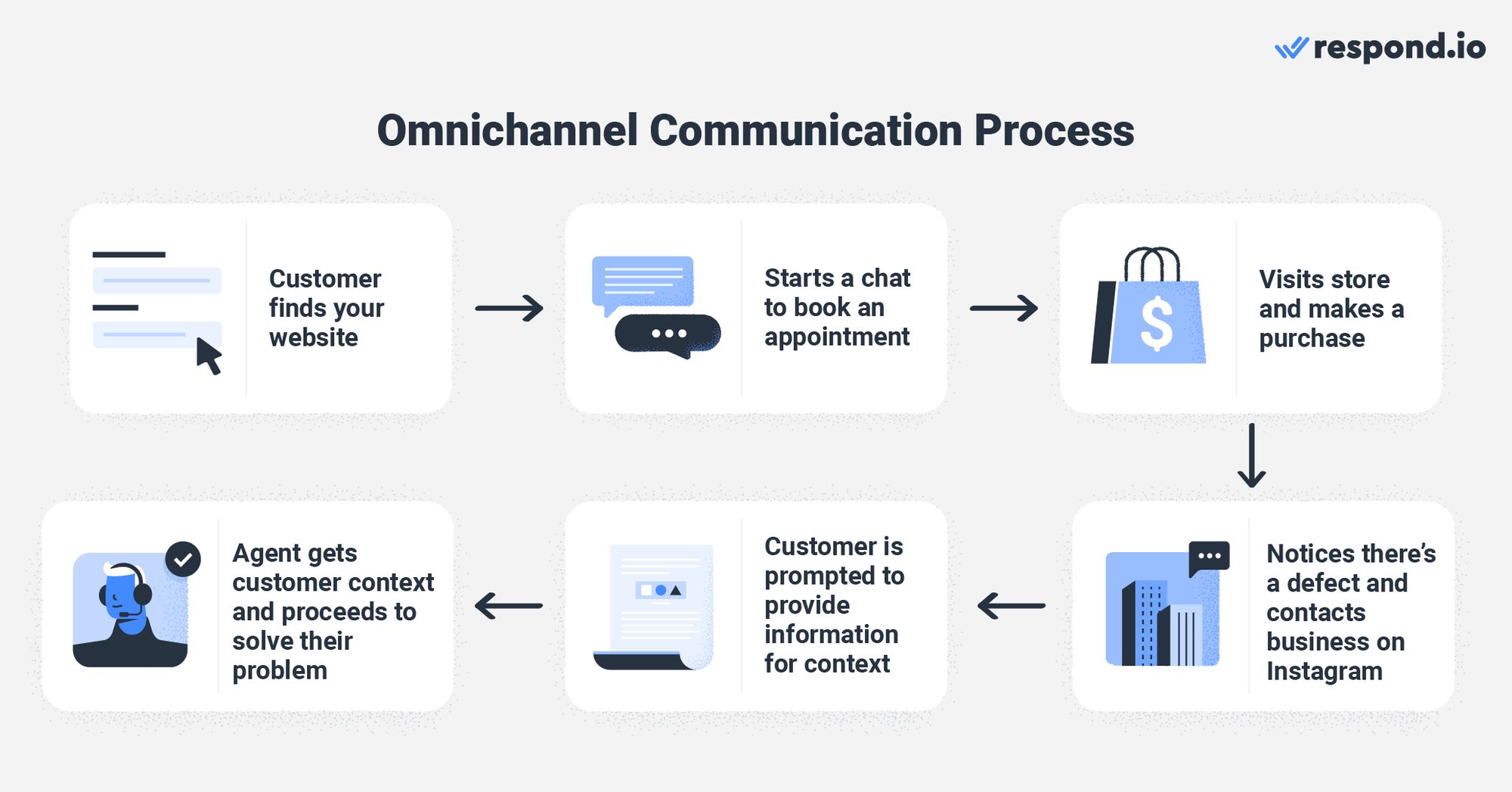
When they realize there's a costume defect, they message the business on Instagram where they’re prompted to provide their personal details and the issue they’re facing. The agent gets the customer’s context and assists them with their problem.
From the example, you’ll see that the customer moves naturally between online and offline channels.
While the omnichannel communication concept is relatively new in the industry, many confuse it with multichannel communication. To help you understand the differences, we’ll explore both strategies in the next section.
Differences Between Omnichannel Communication and Multichannel Communication
Omnichannel communication and multichannel communication have different goals and benefits in mind. A multichannel communication strategy simply means that a business is using multiple communication channels.
Its primary focus is to have a presence wherever customers are. The channels involved function individually and are disconnected. For that reason, customers cannot continue a conversation or move from one channel to the next easily.
Feature | Omnichannel Communication | Multichannel Communication |
|---|---|---|
Objective | To deliver consistent customer experience across channels (Customer-centric) | To have a presence wherever customers are (Channel-centric) |
Strategy | Focuses on customer experience | Focuses on channel engagement |
Characteristics | • Involves multiple channels that customers use | • Involves multiple channels that customers use |
An omnichannel communication strategy, on the other hand, means that you have multiple communication channels that are connected. This approach is more customer-centric as it focuses on delivering a consistent customer experience at every touchpoint.
A successful omnichannel communication strategy involves a profound understanding of customers’ needs paired with a platform to help businesses access customers’ contexts and more. We’ll discuss more on this later.
To summarize, both strategies provide multiple touchpoints to customers. But the omnichannel communication strategy connects all the channels and eliminates communication gaps that come with a multichannel strategy.
Turn customer conversations into business growth with respond.io. ✨
Manage calls, chats and emails in one place!
Why is Omnichannel Communication Important for Businesses?
Today’s consumers use multiple channels throughout their lifecycles. They might browse your products on Facebook Shop, follow you on Instagram for updates and prefer to chat or calls over WhatsApp.
While it's easy to be available on multiple channels, 90% of customers want an omnichannel service.
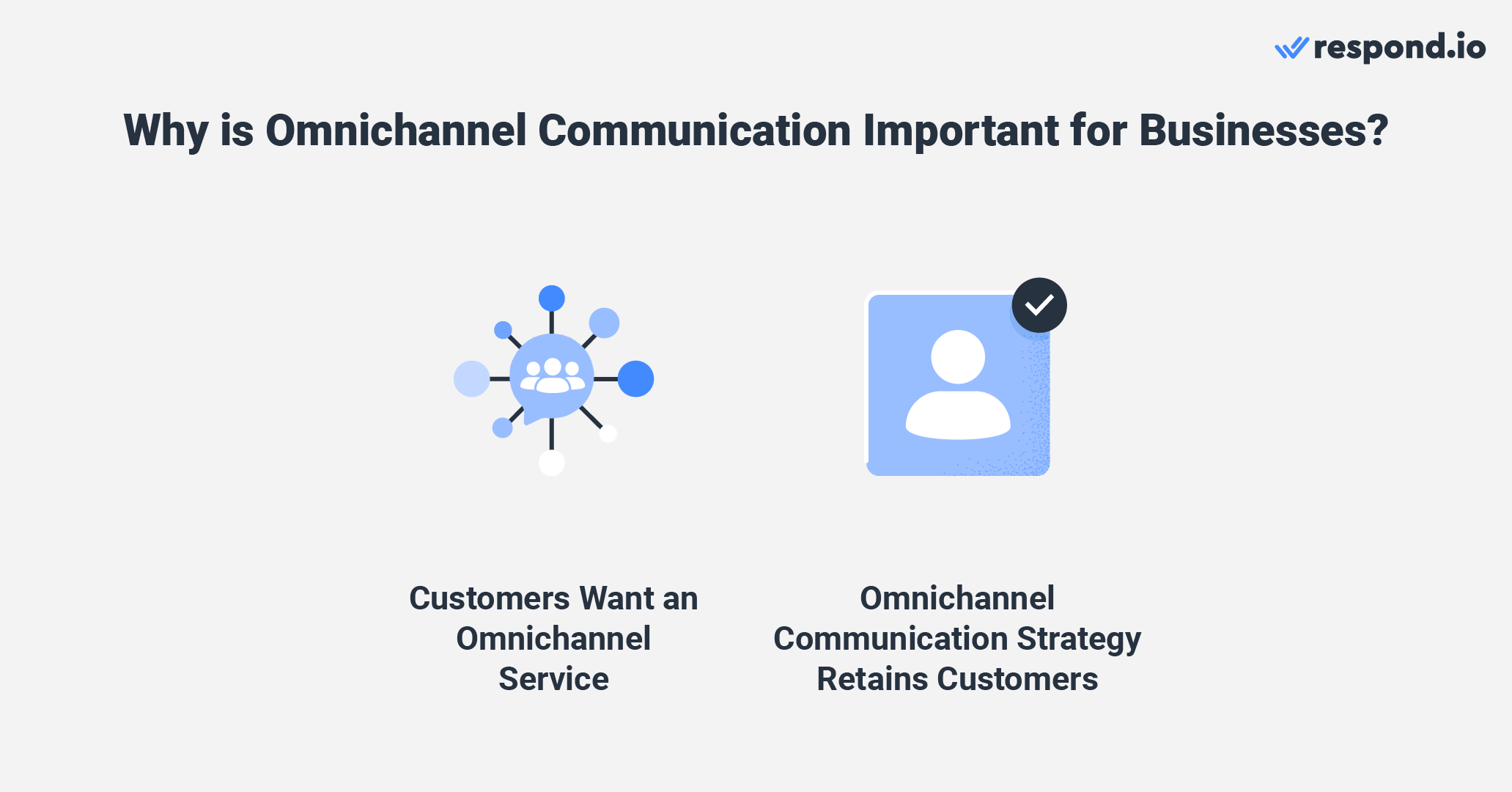
It is also proven that companies with effective omnichannel strategies retain 89% of their customers compared to the 33% retention rate for companies with weak omnichannel customer engagement.
Understanding this, the number of companies investing in the omnichannel experience has grown by 60% from 2012 to 2020. Now let’s look at how omnichannel communication benefits businesses that use multiple channels.
A Single Source of Truth for Customer Information
Customers want a united front of company representatives that are equipped with the same context and information. In fact, 65% of customers expect all company representatives to have the same information about them.
This is especially true because customers dislike re-identifying themselves and repeating their concerns on each channel. Hence, businesses need a complete view of their customer's journey to have a successful omnichannel communication strategy.
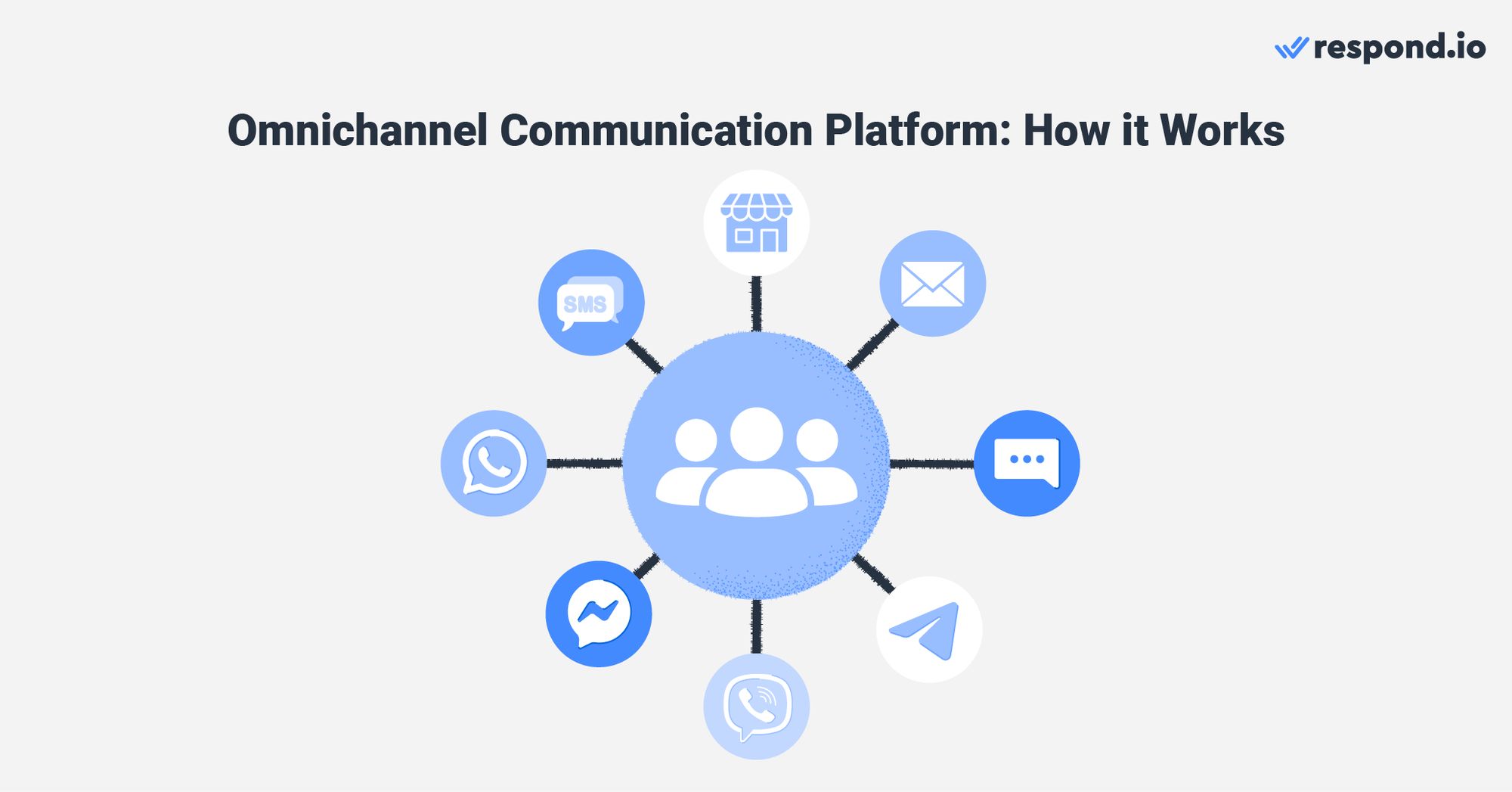
You need to consolidate customers’ information like personal data and conversation history into a single platform to provide a smooth, consistent experience. This is where an omnichannel communication platform comes in.
An omnichannel communication platform provides businesses with a single source of truth for customer information by streamlining various channels into a single platform. This provides valuable insights into your customer journey for a consistent experience.
Provide Consistent Customer Experience with Ease
To maintain a consistent customer experience, all customer-facing teams must communicate according to their brand’s values and tone. While businesses can create messaging guides and templates to reflect these, personalizing them manually can be tiresome.
Fortunately, with the help of an omnichannel communication platform, you can standardize your messages across channels using canned responses that are accessible with one click. These responses are automatically personalized.
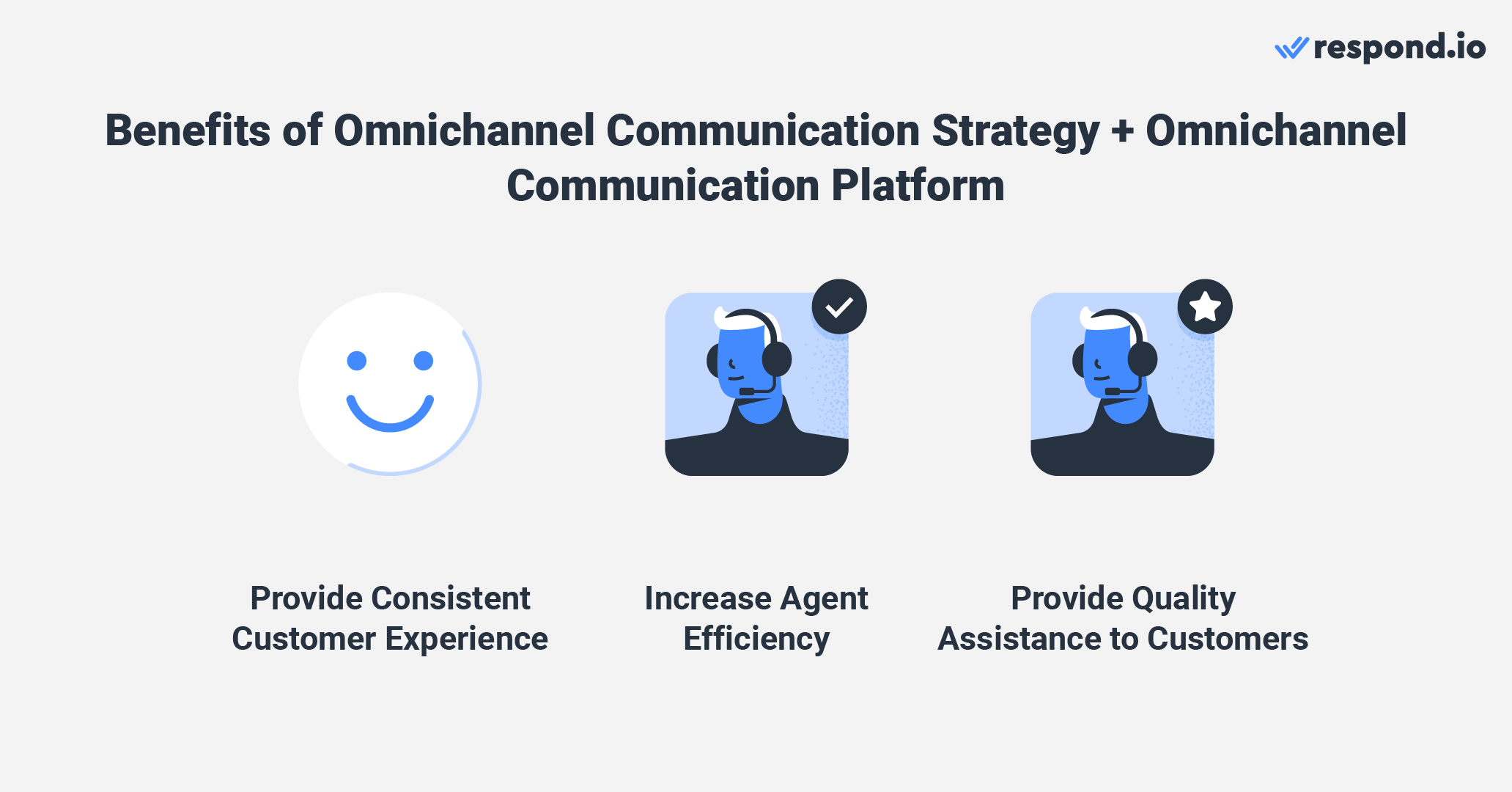
Not just that, but because all the channels are connected to one platform, you can execute your strategy simultaneously on each channel. As a result, you can provide a consistent customer experience while helping agents work more efficiently to provide high-quality assistance.
At its most basic, an omnichannel communication system should allow you to:
Integrate multiple channels while supporting all of the channels’ features
Respond to customers regardless of the channel from a single platform
Automate simple tasks like quick replies that work across channels
If you’re looking for an omnichannel communication platform that supports all the features above and more, we suggest you give respond.io a shot.
Using Respond.io Omnichannel Communication Platform: Quick Wins
Now that you know everything about omnichannel communication, let's look at how respond.io can help with your omnichannel communication strategy.
Connect Any Channel to Respond.io
Respond.io is an omnichannel communication platform that allows you to streamline business communication across instant messaging apps along with traditional channels like email and webchat.
It supports all popular messaging apps, including WhatsApp, Facebook Messenger, LINE and Viber, and has an omnichannel chat widget for them all. It also has a QR code generator to bring customers and leads from physical stores into your messaging inbox.
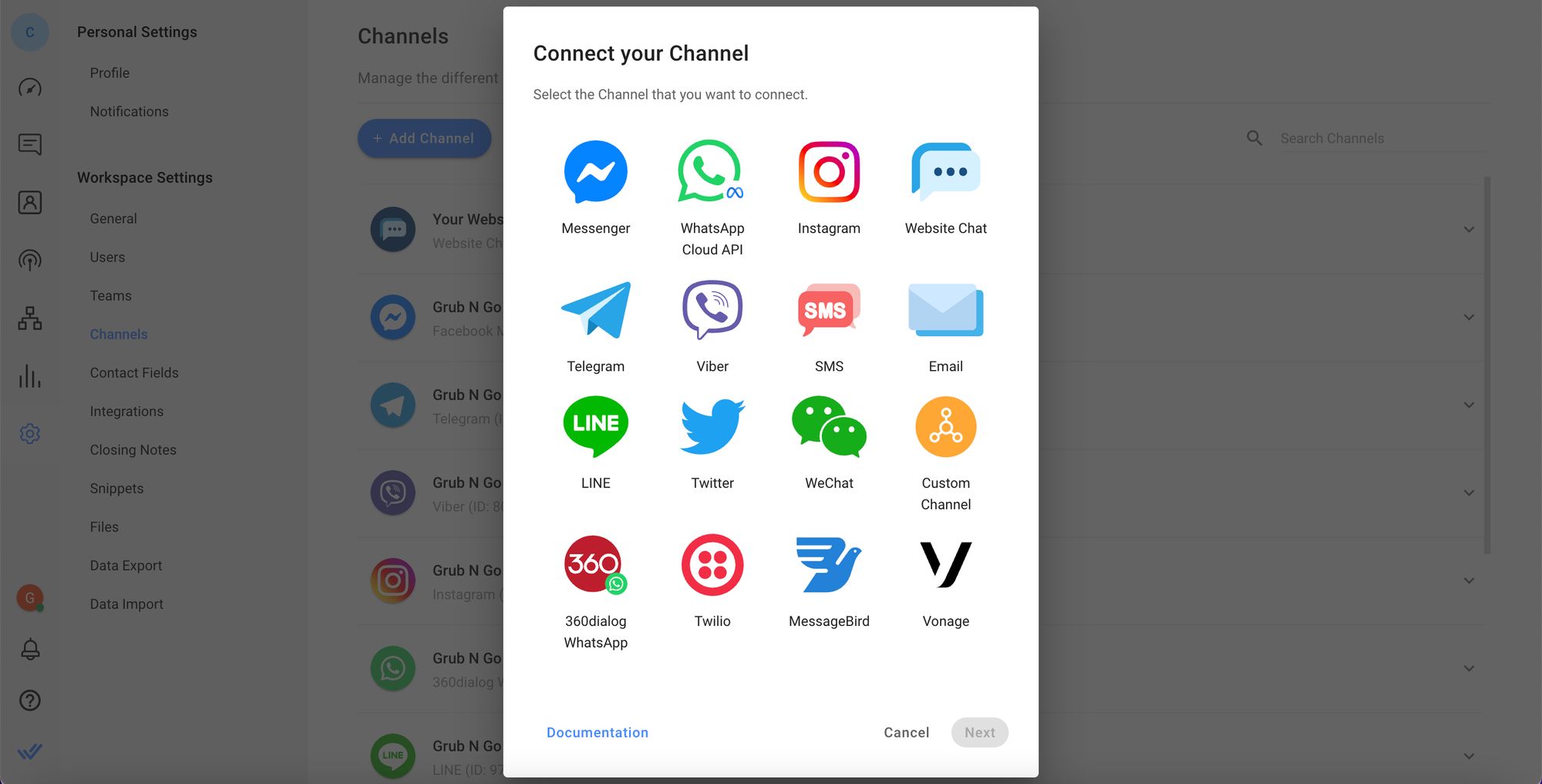
Businesses can even connect custom channels and their CRMs with respond.io. This will allow them to exchange information between any messaging channels with their CRMs or custom channels.
For instance, you can update customer data in CRMs and on respond.io simultaneously, and create deals or support tickets while chatting with customers to record these events on both platforms as part of a consistent customer story.
One Conversation Thread for One Contact
As mentioned earlier, customers will try to contact businesses over multiple channels, and they expect businesses to know their previous conversation history no matter which channels their past chats took place on.
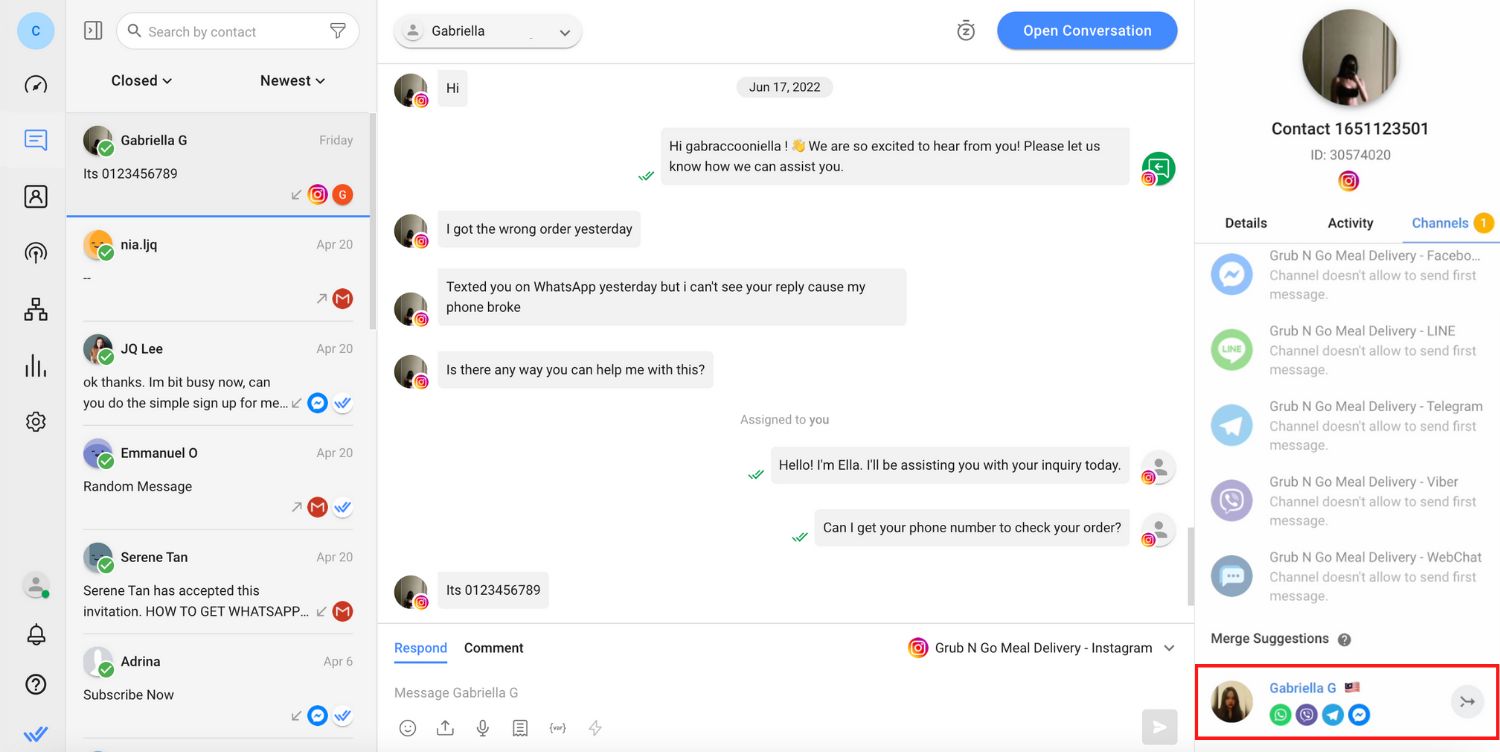
To help you get a comprehensive view of a customer, respond.io allows you to merge all Contact details and conversation history across channels into a unified profile. This way, a customer’s conversation will be in one thread, preventing siloed conversations.
It also allows customers to continue a conversation from one channel to another without having to repeat background information. This will help agents understand customers’ contexts immediately and select the most effective way to help them.
Supports Multiple Use Cases
Respond.io has all the tools you need to conduct marketing, sales and support on various channels. For marketing, businesses can use the respond.io broadcast tool which allows you to segment Contacts into different audiences to send targeted broadcast messages.
You can send broadcasts on channels like WhatsApp, Facebook Messenger and Viber with different types of content like images, videos and more. Respond.io also enables you to standardize 1:1 messaging across all channels with canned responses.
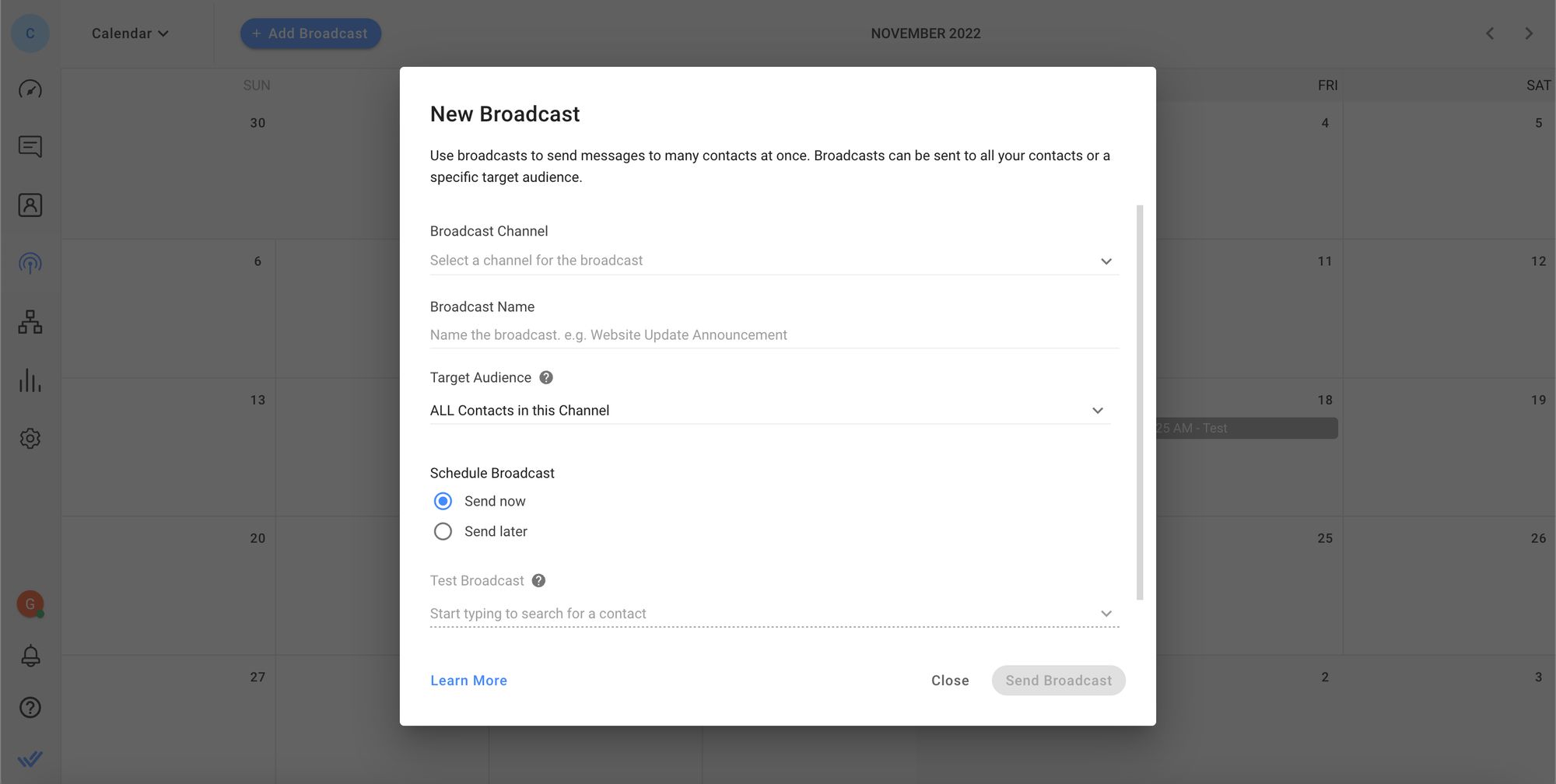
Besides that, businesses can automate repetitive sales and support tasks with Workflow Templates or build Workflows from scratch. This includes automation for lead qualifying, answering FAQs, routing and assigning customers and more.
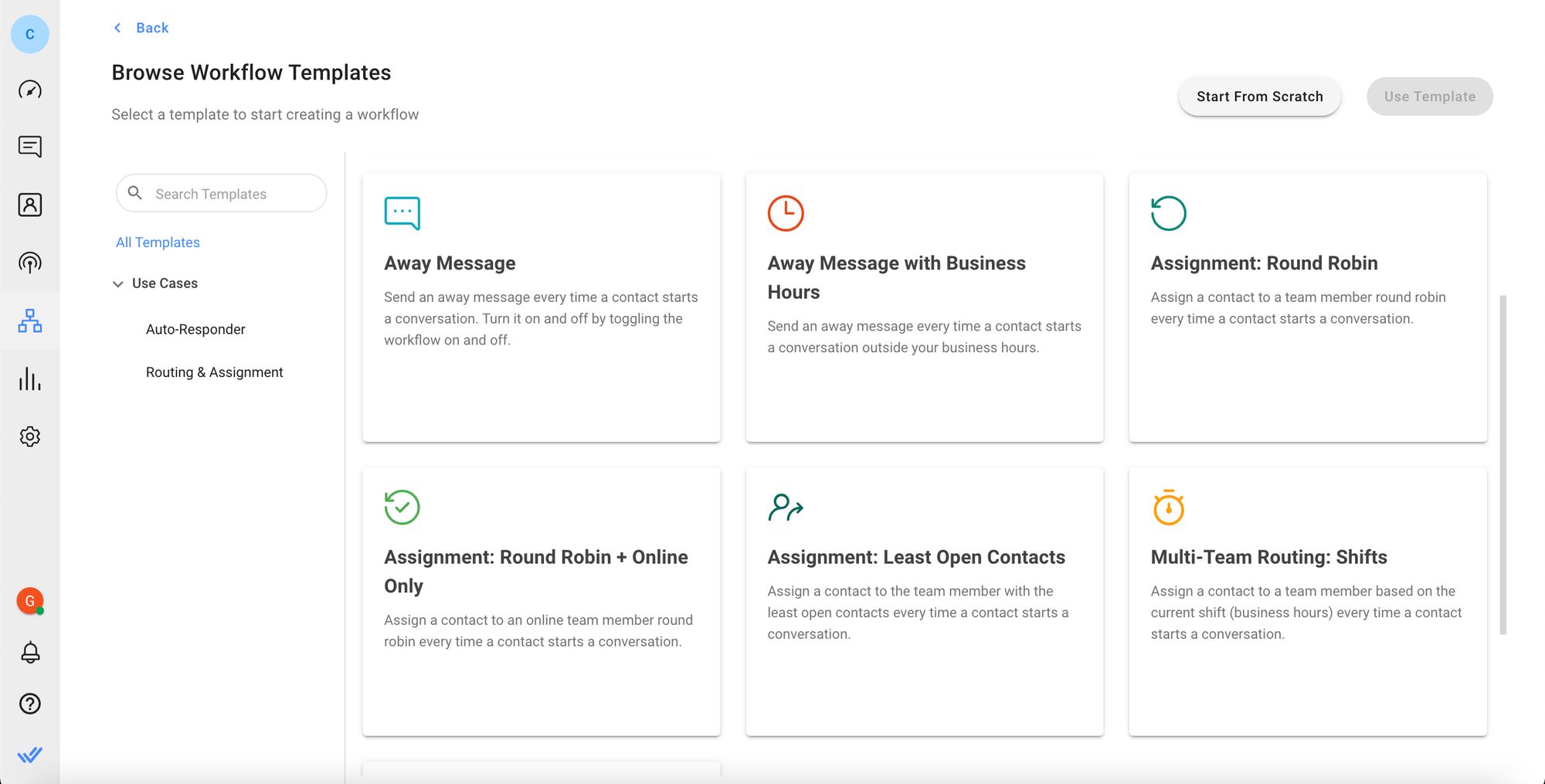
In addition, businesses can measure the success and quality of customer support by sending a customer satisfaction (CSAT) survey or by tracking individual or team performance.
Monitor Performance with Reports and Analytics
Businesses can use respond.io’s Reports and Analytics to keep track of agent workload and productivity, conversation progress and resolution time. The supervisor dashboard allows managers to identify conversations that have been on hold or unresolved for too long and monitor agents in real time.
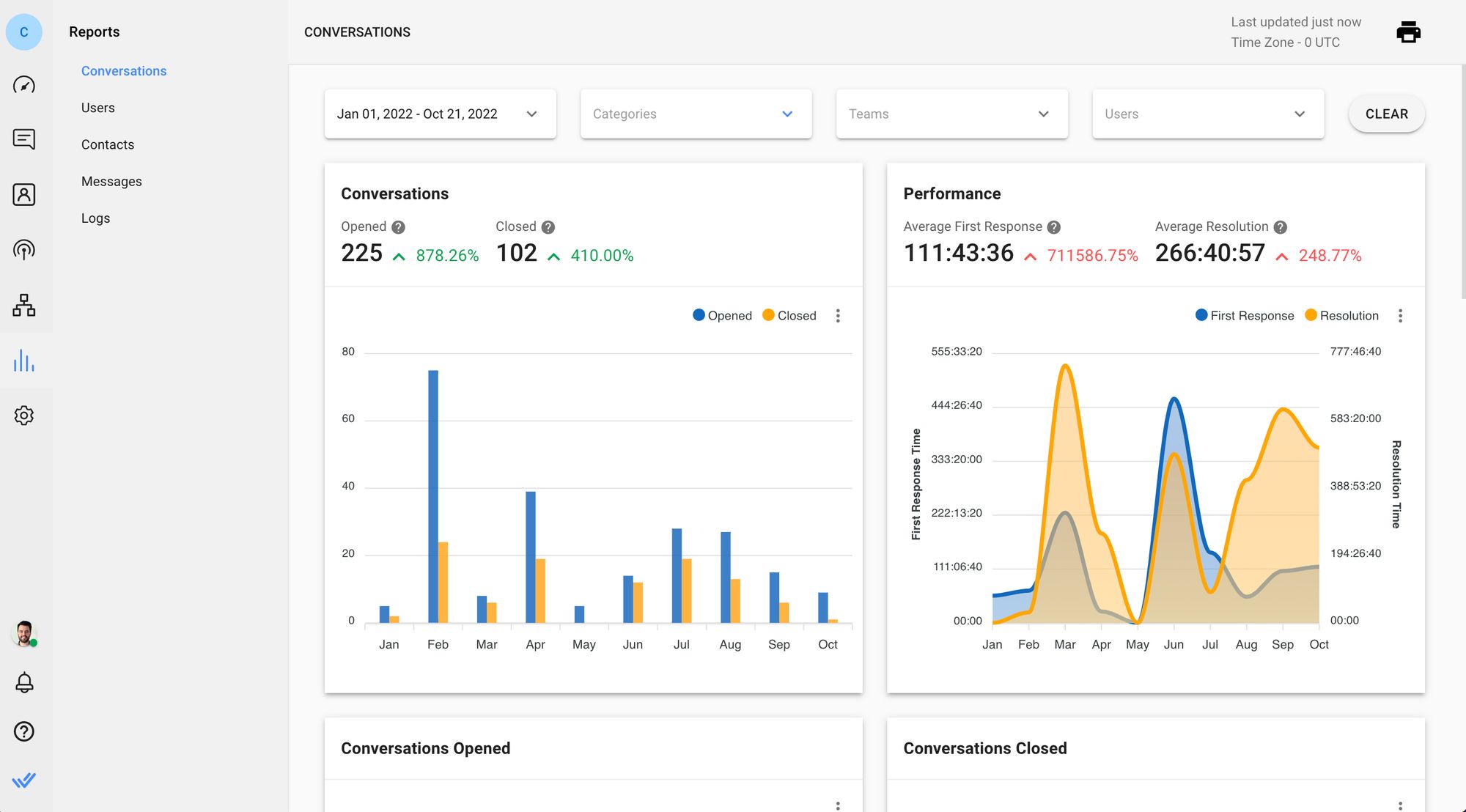
Managers can see their teams’ efficiency, analyze the areas they are lacking in and work towards improving their performance. Lastly, they can carry out all their tasks anywhere with the respond.io mobile app. It is available on Google Play Store for Android and Apple App Store for iOS.
Turn customer conversations into business growth with respond.io. ✨
Manage calls, chats and emails in one place!
Further Reading
Need inspiration to kickstart your omnichannel communication journey? Have a look at our customer success stories!






































 Electronics
Electronics Fashion & Apparel
Fashion & Apparel Furniture
Furniture Jewelry and Watches
Jewelry and Watches
 Afterschool Activities
Afterschool Activities Sport & Fitness
Sport & Fitness
 Beauty Center
Beauty Center Dental Clinic
Dental Clinic Medical Clinic
Medical Clinic
 Home Cleaning & Maid Services
Home Cleaning & Maid Services Photography & Videography
Photography & Videography
 Car Dealership
Car Dealership
 Travel Agency & Tour Operator
Travel Agency & Tour Operator




